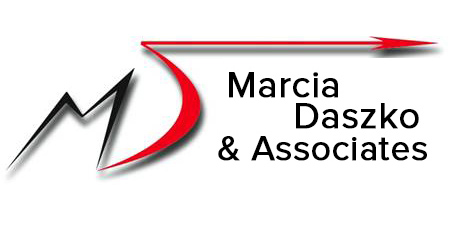Marcia’s Leadership Q&A
/Send your leadership and team questions to Marcia Daszko at md@mdaszko.com. She works with Boards, C-suite leaders and teams to pivot, innovate, accelerate and achieve bold results never before imagined. A provocative keynote & virtual speaker, strategic Deming advisor/consultant for 25+ years, she is the bestselling author of the book “Pivot Disrupt Transform.” www.mdaszko.com
Q. When should a team prepare for a crisis? Is it too early to plan for the next crisis, especially when we’re still in the middle of this one?
A. Great leaders, at work and at home, anticipate and consider challenges and how they will respond to them. Whether it’s pilots training to deal with a challenge in flight, families preparing for an earthquake or a hurricane, a driver being aware of the traffic, a company preparing for a pandemic or loss of a major client, people do a variety of crisis planning. Some companies had a plan in case they were ever faced with a pandemic. Did your company have a plan? Those that had one had created it with calm rationality and could quickly adapt it. Others had to rapidly pivot, or they struggled.
Thoughtful leaders at home and at work think ahead. They scan their environment for safety. What might they be faced with? With your team, what do you need to think about, anticipate, discuss, plan and prepare for? It’s never too late to make a plan. That’s what leaders do. When it’s needed, leaders and their rapid action teams adapt and pivot, and respond. If an unforeseen crisis occurs, teams who have a foundation in leadership thinking, will respond rather than react or freeze in fear.
Q. What signs should a leader look out for that signal that they may not be the right leader for the job anymore or should take a different role in the organization and move aside?
A. It is not uncommon for a founder, owner or executive to move aside as an organization grows, needs to scale, or goes through transitions they have no experience in or are uncomfortable with. The enterprise may be moving and growing at a fast pace, building in complexity, or innovating into new areas of expertise. If executives feel overwhelmed, uncomfortable, fearful, or are micro-managing, they need to assess if they are continuing to find joy and satisfaction in their current position.
There are multiple ways to address this situation. Many young founders have a close mentor(s) such as a supportive CEO, Board Director or a professor who guide and advise them as they navigate and develop. Or an executive may have founded an organization and be passionate about product development, but may not have an affinity for running or growing a business. People have natural leadership within them and each person needs to decide where they can best contribute and feel fulfilled.



